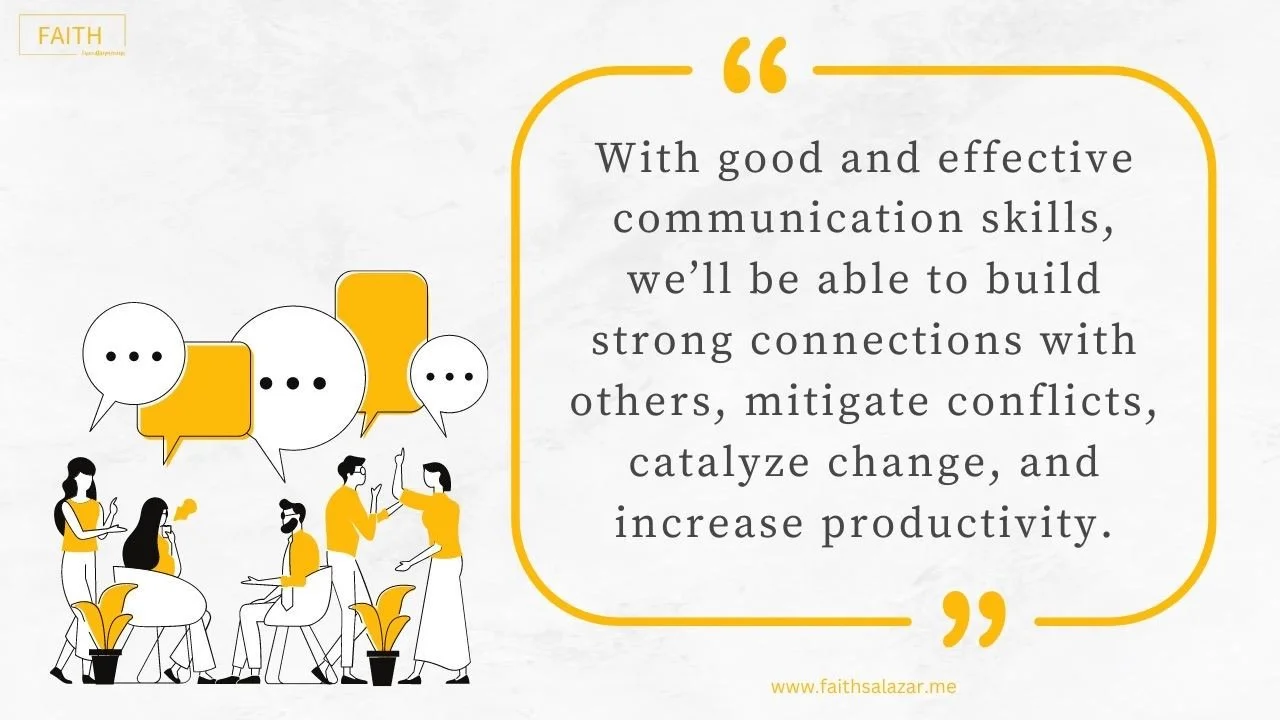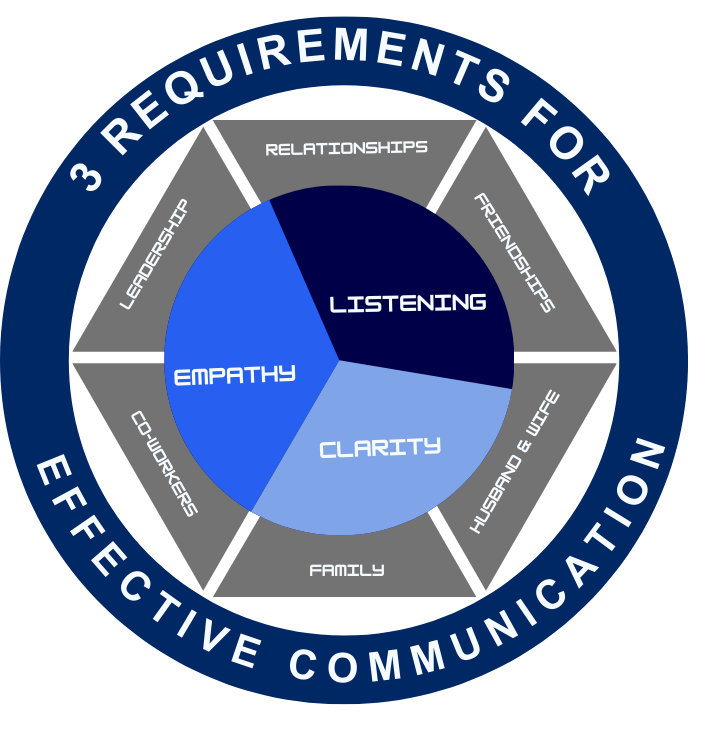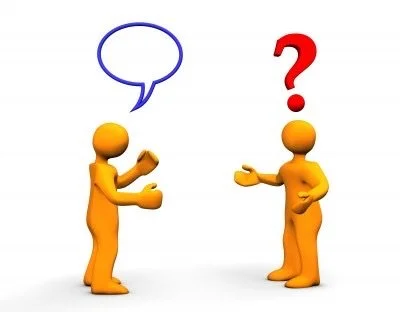Effective Communication: The Superpower Behind Every Success
Can you truly be effective at anything without strong communication skills?
Whether you’re leading a team, navigating a relationship, teaching a student, or simply ordering coffee, your ability to communicate shapes your outcomes. Communication is not just a soft skill—it’s the core of leadership, teamwork, and influence.
Let’s be honest: great communicators stand out. They inspire action, build trust, solve problems, and drive results. Poor communicators? They create confusion, frustration, and disengagement—even if they have the best of intentions.
Why Communication Matters in Every Role
Here’s a short, but powerful list of areas impacted by communication:
Friendships – Misunderstandings can fracture even the strongest bonds.
Relationships – Connection thrives on thoughtful words and intentional listening.
Customer Service – Every interaction is a chance to earn loyalty or lose it.
Postman, Dishwasher, Teammate, Student – Even “non-verbal” roles require communication to work well with others or to follow direction clearly.
Employees and Employers – Miscommunication can derail careers and company culture.
Whether you’re leading a company or part of a team, clear and intentional communication is your competitive edge.
So yes, to effectively communicate, you have to put in effort. It doesn't just happen and it isn't always easy.
In this blogpost Pumble wrote,
"Positive communication is also assertive, which means that you share your opinions and feelings without being overbearing or violating others. Assertive individuals value both themselves and other people — they can express themselves directly and honestly while still being respectful to others."
Good and effective communication skills - www.faithsalazar.net
Positive, effective communication consists of these 7 Cs of communication.
Clarity – Define your main point.
Conciseness – Say it simply and directly.
Concreteness – Use facts and examples.
Correctness – Ensure accuracy and appropriateness.
Coherence – Make sure everything flows logically.
Completeness – Include all necessary information.
Courtesy – Be polite, respectful, and professional.
3 Requirements for Effective Communication
Three Pillars of Effective Communication
In order to master communication and turn it into the most important skill that you possess, you must focus on these 3 foundational elements of communication:
1. Clarity
Think before you speak. Say what you mean. Mean what you say.
Clarity means structuring your thoughts so your message is easy to understand—free of jargon, ambiguity, or emotional fog. A lack of clarity can create confusion, conflict, or missed opportunities.
Ask yourself:
Does what I’m saying sound the way I intend it to?
Will the listener understand my message the way I mean it?
Examples where clarity is critical:
A CEO casting vision to a company.
A husband and wife discussing plans.
A manager giving instructions to a new employee.
Clear communication eliminates guesswork and builds confidence.
Clarity in Communication.
2. Active Listening
Communication is a two-way street—and listening is the often overlooked side.
Active listening means you are fully present in the conversation—not just waiting to speak. It involves hearing the words, noticing the tone, observing body language, and asking questions to better understand.
“People don’t care how much you know until they know how much you care.”
The fastest way to show you care? Listen.
Key reminders:
Resist the urge to formulate your reply while the other person is still talking.
Mirror back what you heard to confirm understanding.
Don’t interrupt—make space.
Relationships often fall apart not from what’s said, but from what’s not heard.
3. Empathy
Empathy is the difference between being heard and being understood.
Empathy means putting yourself in the other person’s shoes—emotionally, mentally, and situationally. When you communicate with empathy, your message becomes more thoughtful, your tone more respectful, and your delivery more impactful.
Empathetic communication:
Builds trust.
Encourages collaboration.
De-escalates conflict.
Leaves people feeling valued.
Without empathy, even clear messages can land the wrong way.
The Mindset Behind All Great Communicators
As I mentioned earlier in this article, the most effective communicators understand this truth: It takes effort.
You must be willing to:
Self-assess. Where are you strong? Where do you fall short?
Be intentional. Communication should never be on autopilot.
Stay aware. Every interaction is an opportunity to build—or break—connection.
Commit to growth. Being a great communicator is part of being a great People Builder.
Final Thought: Talk Is Not Cheap
Words are powerful. They shape culture. They forge relationships. They drive change.
Communication is not something you have—it’s something you build.
Whether you’re leading a team, mentoring someone, managing a household, or growing a business, becoming a better communicator will elevate every area of your life.
So start today. Listen better. Speak clearer. Lead with empathy.
Because when communication improves, everything improves.
Thanks for taking the time to read this article.
Until next time - Expect to Win!
#xp2win | On a journey - Chasing Better!



